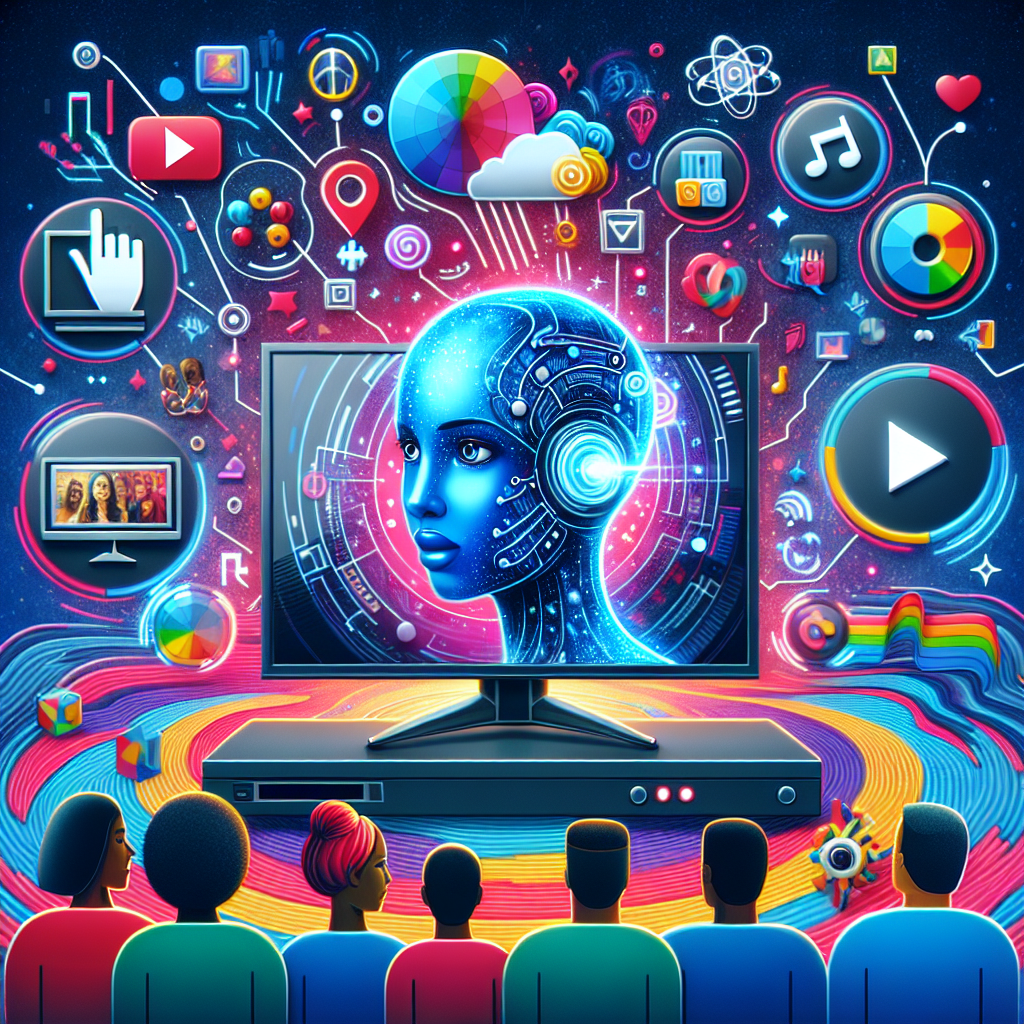The advent of artificial intelligence (AI) has profoundly transformed various industries, and the realm of television technology is no exception. AI has not only enhanced the technical capabilities of modern televisions but has also significantly improved the user experience. From personalized content recommendations to interactive interfaces, AI is reshaping how we consume and interact with television content. This article delves into the impact of AI on television technology and user experience, offering insights into the current trends and future possibilities.
The Evolution of Television Technology
Television technology has come a long way since its inception. From the early days of black-and-white broadcasts to the high-definition and ultra-high-definition (UHD) displays of today, the advancements have been remarkable. However, the integration of AI marks a new era in television technology. AI has enabled televisions to become more than just passive receivers of content; they are now intelligent devices capable of learning and adapting to user preferences.
Smart Content Recommendations
One of the most noticeable impacts of AI on television technology is the ability to provide personalized content recommendations. AI algorithms analyze user viewing habits, search history, and even social media interactions to suggest content that aligns with individual preferences. This not only enhances user satisfaction but also increases engagement and viewing time. Platforms like Netflix and Amazon Prime Video have leveraged AI to create sophisticated recommendation engines that keep viewers hooked.
Advanced User Interfaces
AI has also revolutionized the user interfaces of modern televisions. Voice-activated assistants like Amazon Alexa and Google Assistant have made it easier than ever to control smart TVs. Users can simply speak commands to change channels, adjust settings, and even search for content. This hands-free interaction not only adds convenience but also enhances the overall user experience. Additionally, AI-powered interfaces can adapt to user preferences over time, making the TV experience more intuitive and user-friendly.
Enhancing User Experience
The impact of AI on user experience extends beyond content recommendations and user interfaces. AI has the potential to transform how we interact with and consume television content in several ways.
Interactive and Immersive Content
AI has enabled the creation of interactive and immersive content that engages viewers like never before. Virtual reality (VR) and augmented reality (AR) technologies, powered by AI, can create immersive experiences that transport viewers into the content they are watching. For example, AI can generate real-time graphics and effects that enhance sports broadcasts, making the viewing experience more engaging and dynamic.
Content Personalization
AI can personalize content to an unprecedented level. By analyzing user data, AI algorithms can create custom content that caters to individual preferences. This includes personalized news feeds, tailored advertising, and even customized entertainment experiences. For instance, AI can create a personalized playlist of songs for a user based on their preferred genres and artists, enhancing the entertainment experience.
Accessibility and Inclusivity
AI has also made television more accessible and inclusive. For individuals with disabilities, AI-powered features such as automatic closed captioning, sign language interpretation, and voice recognition can enhance the viewing experience. These features ensure that everyone, regardless of their abilities, can enjoy television content. Additionally, AI can translate content into multiple languages, making it accessible to a global audience.
Future Trends and Possibilities
The integration of AI in television technology is still in its early stages, and the future holds even more exciting possibilities. Here are some potential trends and advancements to watch for:
- Predictive Analytics: AI can predict what content users are likely to watch next, allowing for better content curation and distribution.
- Smart Advertising: AI can create highly targeted and personalized advertisements that are more relevant and engaging for viewers.
- Enhanced Content Creation: AI can assist in the creation of content, from scriptwriting to post-production, making the process more efficient and cost-effective.
- Smart Home Integration: AI-powered televisions can integrate seamlessly with other smart home devices, creating a more connected and cohesive home entertainment system.
Challenges and Considerations
While the benefits of AI in television technology are significant, there are also challenges and considerations to keep in mind.
Data Privacy and Security
AI relies on vast amounts of user data to function effectively. This raises concerns about data privacy and security. It is crucial for manufacturers and content providers to implement robust security measures to protect user data. Transparent data handling policies and user consent mechanisms are essential to build trust and ensure ethical use of AI.
Algorithmic Bias
AI algorithms can sometimes exhibit biases based on the data they are trained on. This can lead to skewed content recommendations and a lack of diversity in the content users are exposed to. It is important for developers to continuously monitor and improve AI algorithms to ensure they are fair and unbiased.
Technological Barriers
Not all users have access to the latest AI-powered televisions due to cost or technological barriers. This can create a digital divide, where some users are left behind. Efforts should be made to make AI technology more accessible and affordable, ensuring that the benefits of AI are available to everyone.
Conclusion
The impact of AI on television technology and user experience is profound and far-reaching. From personalized content recommendations to interactive interfaces and enhanced accessibility, AI is transforming how we consume and interact with television content. As AI continues to evolve, we can expect even more innovative and exciting advancements in the future. However, it is important to address the challenges and considerations associated with AI to ensure that its benefits are realized in a responsible and inclusive manner. The future of television is bright, and AI is leading the way.

